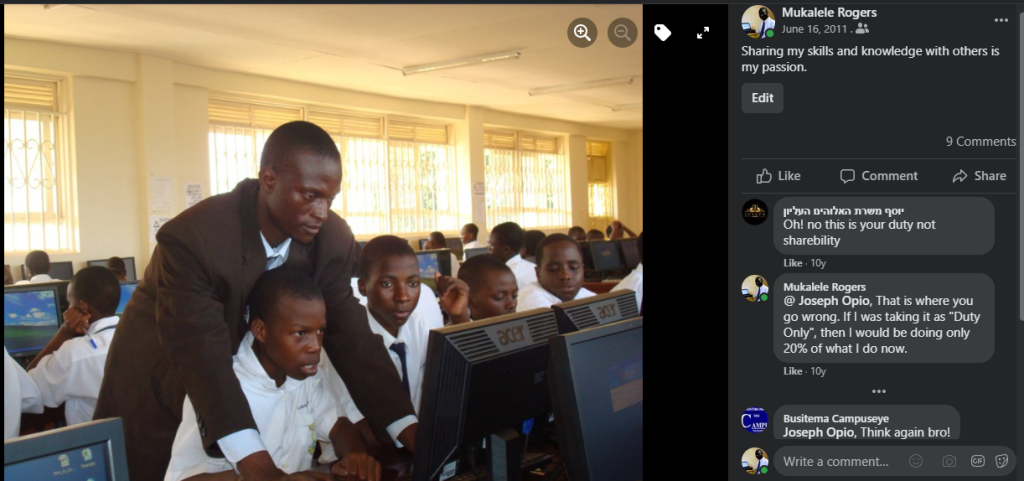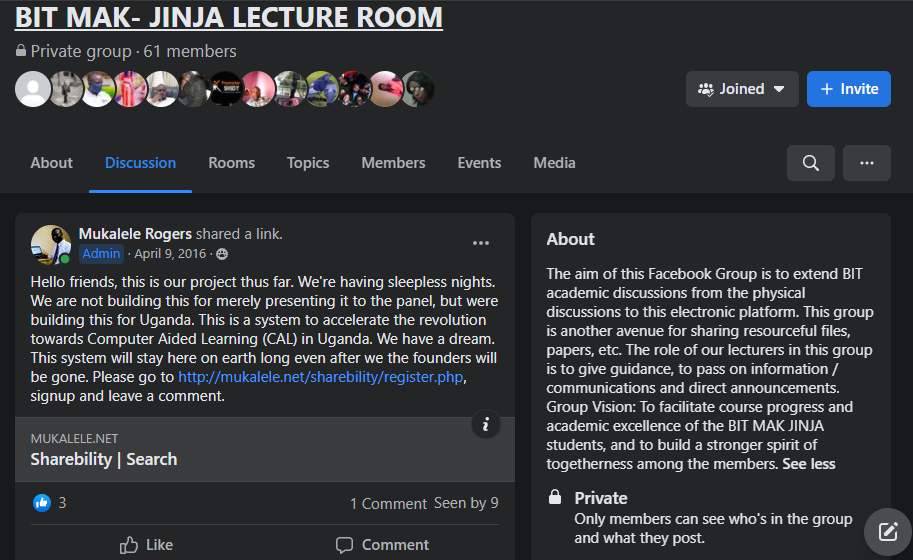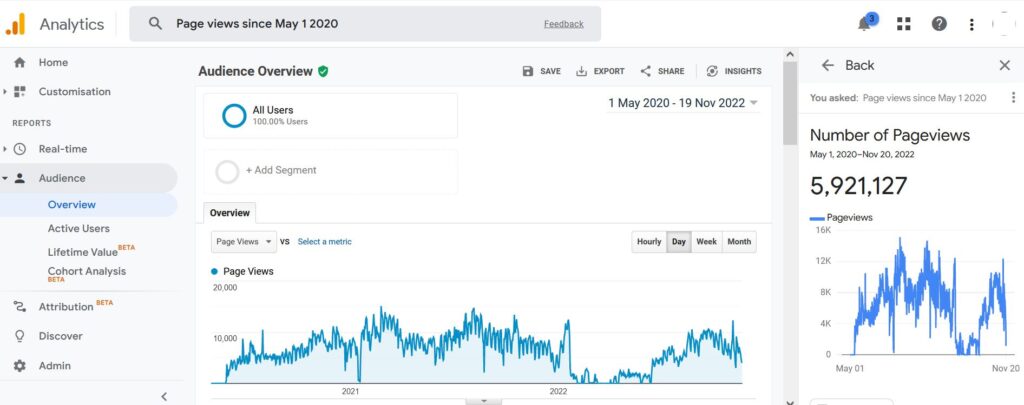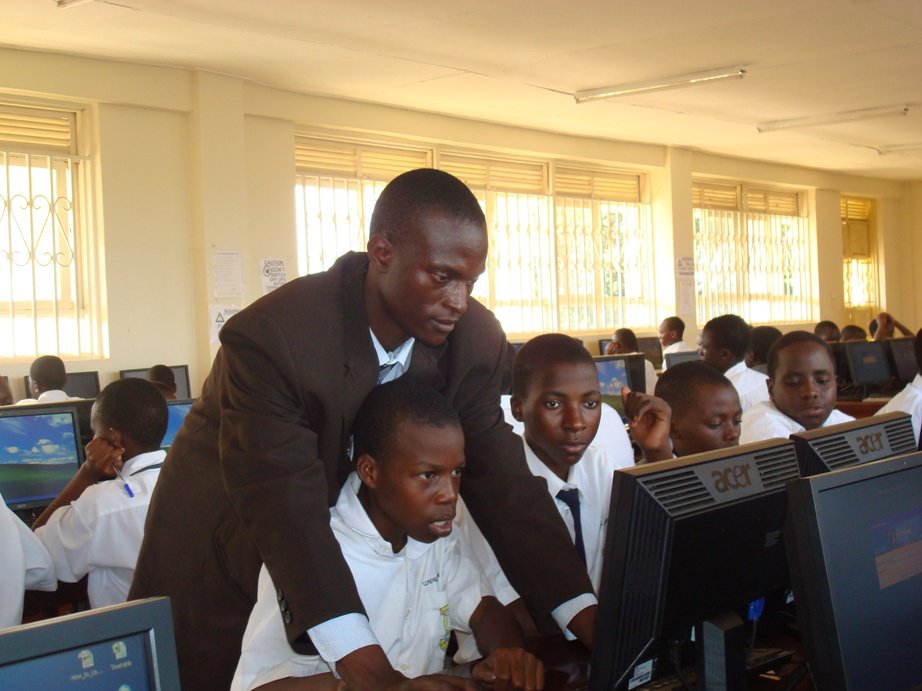Similar to the dorm room roots of innovations like ‘Facebook’, The word ‘Sharebility’ was coined in a shared dorm room at Busitema University Nagongera Campus where I stayed with my course mates. In the room, we jointly contributed and shared resources / consumables like sugar, soap, juice, odii (read gnut-paste), etc – we used to call this ‘The spirit of sharebility’.

Spirit of Sharebility extended beyond the dorm room to the academics – we used to share things like reading materials, computer software and also generously shared knowledge during discussions at campus.

The Challenge of teaching notes and resources during School Practice
In our second and third year at campus in 2010, we were sent out by the university as student-teachers to various schools for Internship. Unlike today where sharing of resources is common through social media apps like WhatsApp, by then few people had access to smartphones. We mainly used Facebook only when we got access to a desktop with internet access such as in a cafe.
To make matters worse, we were teaching a new subject (Computer Studies) for which few text books were not on market. The books that we had to use for reference were Kenyan books, yet they too could not address the Ugandan syllabus fully. For my first school practice, I was sent to Rock High Tororo and I suffered a lot – I had no reference book – not even the Computer Studies syllabus book was available because the school was just introducing the subject! But I was lucky in the final year – I was sent to Jinja College for my teaching practice, and Jinja College had acquired a Sh. 900M mega computer lab at the time. The lab was fully connected to good internet too.

The privilege of working at Jinja College gave me access to resources like Internet, the physical library and strong computers. Because of this, I became very productive and was able to digitize computer studies teaching materials for all classes, and also authored several textbooks on my own! I was using the internet to research and create content for each topic on the Computer Studies syllabus from S1-S4. Many of my OBs and OGs used to reach out to me to send them the notes, presentations and examination papers which I was creating. After I noticed increased demand, I decided to create a blog through which I could share my resources to help everyone out there!

Within a few months, my blog started getting lots of traffic from teachers in other schools who were not my OBs or OGs – they simply landed on my blog after a Google search – as narrated in this earlier testimony by Mr. Dumba Stephen.
Crowdsourcing Model Introduced
Till this time, the sharing was one-way: me to the world. But this one way model is not sustainable, because once the source is no longer in position to create more content, then the platform becomes dormant and obsolete. Because of this, I came up with a new innovation – I added many of my friends to a collaborative Facebook Group, and created a shared folder through dropbox.com service which I integrated in the blog.

“Q U O T E –
(Changquan, Xuefeng, Yukuo, & Yanhong, 2010).
The design of a distributed heterogeneous educational resource sharing platform can realize the inter-connection, inter-communication and sharing, reduce the cost of educational resources and speed up the process of access to resources for teaching and learning. Consequently, the time and cost that would have been incurred by a single teacher is sharable amongst the partners through a give-and-take commitment. This is the reason why several countries have adopted the norm of being part of educational networks and associations.”
Sharebility shared during UCC Teacher retooling workshops
During this time, Uganda Communications Commission and the Ministry of Education were conducting retooling workshops aimed at equipping teachers of other subjects already in active service to teach ICT and Computer Studies, after realizing a shortage of ICT teachers yet ICT had just been introduced at A Level. During the workshops, the ICT teachers who already knew about the Sharebility blog shared about it to the new teachers, because the blog was rich with the teaching notes, ICT syllabus and past papers they needed to get started. During one of the workshops which I managed to attend at Kololo SS, I was given chance to share with the teachers and demonstrate to them how to share resources through the platform.

The Birth of the ICT Teachers Association of Uganda (ITAU)
By 2016, the various UCC retooling workshops had created a network of teachers who mainly connected through Facebook. On 9th Dec 2016, a Whatsapp group was created by an ICT teacher at Nakamwa SSS -Sir. Nicholas ‘oMubedhe’ Munyagwa, who added me as one of the admins of the group since I was already popular in the ICT Teachers network due to Sharebility. During mobilisation, he refered to the WhatsApp group as ‘An extension of Sharebility’ and the initial purpose was basically resource sharing.
FORRUM FOR ALL ICT TEACHERS IN UGANDA NOW running on WhatsApp. This an extention of sharebility. lets share …. https://t.co/0HCw2ZH3iz
— Sir Nic omubedhe (@sirnicomubedhe) December 9, 2016
Nicholas’ tweet relayed from Facebook, announcing the creation of the first ITAU WhatsApp group on Dec 9th, 2016
It is from this WhatsApp group that the idea of forming the ICT Teachers Association of Uganda came about. We had another workshop in 2018 in which I did the coordination role of the association and the first steering committee for the association was elected. I also continued the drive for sharing more resources and encouraging members to join Sharebility during subsequent ITAU workshop.
Makerere University Final Year Group Project
During this period (2013-2017), I was also undertaking another degree at Makerere University, which required us to build a system solving a societal problem, before graduation. When this task was given to us by the University, I shared with my group members about Sharebility and the problem of scarcity of digital teaching / study resources tailored to our Ugandan curriculum, and proposed that we build a custom PHP powered system for Sharebility Uganda, to replace the then existing blog and dropbox based system.
Unlike other student groups who developed their final year projects on ‘localhost’ offline and only presented it to the university panel for graduation purposes only, I encouraged my group members that what we were coding was to be tested and used by an online community of teachers, and thus we hosted it on a live server even during development stage.


Even after graduation, we continued promoting the new Sharebility Uganda Platform and it gained a lot of traffic to the extent that bandwidth on the hosting server was no longer enough to handle the demand, and we had to upgrade the hosting server as detailed in this 2017 blog post. We also participated in UCC’s Annual Communication Innovation Awards (ACIA) 2017, where we emerged finalists (2nd runners up) in the Young ICT Visionaries Category which was won by developers of a A BEEHIVE INTRUSION AND HONEY MONITORING SYSTEM.
Makerere Innovation and Incubation Center admits Sharebility Uganda as Startup
In 2017, an innovation hub for boosting new technology creations was unveiled at Makerere University in partnership with Ministry of Finance. Makerere Innovation and Incubation Center was aimed at transforming ideas and innovations into small and medium sized companies with promising large scale growth. When I saw a call for startups to apply, I submitted an application for incubation of Sharebility Uganda. We were called for interviews and successfully enrolled.
#Sharebility is one of the startups at @miic_ug that is working on issues in the Education Sector in Uganda. For @JanetMuseveni and team at the Ministry of Education we gat you covered!@PKahiigi @BarackObama @EUinUG @StateHouseUg @BillGates @usmissionuganda @MoICT_Ug @cnnbrk pic.twitter.com/6OJKzzmCo5
— Makerere Innovation & Incubation Center (@miic_ug) August 8, 2018
Representing Makerere Innovation and Incubation Center (@miic_ug) and my Startup Company, Sharebility Uganda @SharebilityUg I have been delegated to attend the #gplcEastAfrica2018 conference HAPPENING NOW at the Common Wealth and Speak Resort Munyonyo. #GPLCUg2018 pic.twitter.com/vbxLhBGAyb
— Mukalele Rogers (@mrogers4christ) August 1, 2018
COVID-19 School Lockdown Sets In
When schools were closed in March 2020 due to the outbreak of the COVID-19 pandemic, schools opened up many WhatsApp groups for learners and parents. Teachers digitized their study content and started sharing it like never before. The challenge I noticed was that content shared through WhatsApp is only accessible temporarily.
I saw this as an opportunity to back up all the content that was flooding the WhatsApp groups on a daily basis. At this rate, we could no longer manage to meet the maintenance needs of the manually coded PHP system and so we decided to rebuild the system using open source, SEO friendly WordPress software since it already has an active community of developers who regularly release updated versions of the software. We constituted a team and published over 10,000 resources on the new system available sharebility.net .
According to current Google Analytics the new Sharebility Digital library has served over 3.3 million learners, who have visited the platform over 5.9 million times since the first lockdown.

Sharebility in the news papers, company registration
In August 2020, we were approached by Journalists from The Observer and The New Vision news papers for interviews which were published in the papers.
I feel delighted yet again to see my efforts @SharebilityUg recognized! This week's @observerug has a 2-page story of my decade-long journey since 2009 at Rock High Sch Tororo! Grab a copy of @observerug at a news stand till 18/Aug/2020 @cbusinge #TeachersMakingaDifference @nbstv pic.twitter.com/CM8tVMql1D
— Mukalele Rogers (@mrogers4christ) August 13, 2020
I feel greatly privileged to see a full page article published about my efforts in today's @newvisionwire. I thank all my students and colleagues who nominated me for this years #TeachersMakingaDifference program. @AupalEmmanuel @cbusinge @SteveUG @SharebilityUg @ictteachersug pic.twitter.com/M0anSFcoLg
— Mukalele Rogers (@mrogers4christ) August 5, 2020
Published article is available on the Observer’s website: https://observer.ug/education/66146-mukalele-provides-free-reading-materials-for-all-schools-for-free
This gave us more encouragement and to also register the startup company with Uganda Registration Services Bureau. At Sharebility Uganda Limited, we has since grown its business portfolio to include Elearning, Website Services (webservices.sharebility.net), Digital Content Publishing, Education Technology, Software tools and Training.
Participation in Startup Uganda Awards 2022
As part of Uganda Innovation week 2022 (uiwug.com), Sharebility Uganda was nominated as StartUp of the Year 2022 along side other innovations, and emerged the best in the education category!
@sharebilityUg came in first as the overall winner of startup of the year in the education category.#UIW2022 #SUAwards22 pic.twitter.com/bCW8DdyXrw
— Uganda Innovation Week (@uiw_official) November 24, 2022
We've made it as Startup of the year in Education category, thanks to your amazing support! ❤️ We dedicate this award to all the teachers who wake up every morning to create content (notes, exams, tutorials), etc for teaching and learning! @uiw_official #UIW2022 #SUAwards2022 pic.twitter.com/67cG8aHl3J
— Sharebility Uganda Limited (@SharebilityUg) November 24, 2022
Delighted to emerge winners of #SUAwards2022 in #Education as @SharebilityUg. Award is dedicated to the daily edu-content creators (teachers)! We're building a digital library at https://t.co/pKejW2Itf3 to ease access to shareable content. Thanks @miic_ug @TheVillageUG @UCC_ED pic.twitter.com/Ewsf9yW0w2
— Mukalele Rogers (@mrogers4christ) November 25, 2022
Article by Rogers Mukalele
Director- Sharebility Uganda (www.sharebility.net)
Tel/WhatsApp: 0776960740/0706060740



